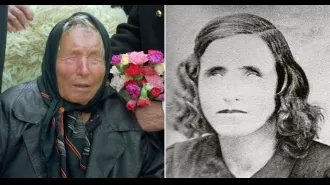Texas is considering banning diversity, equity, and inclusion training, which could jeopardize over 130 scholarships.
Texas banning DEI scholarships, mostly for Texas A&M, in uncertain circumstances.
June 18th 2024.

The future of many students with diverse backgrounds is now uncertain due to the recent decision by the state of Texas to ban diversity, equity, and inclusion programs. This ban has put a hold on 131 scholarships, including the Memorial Scholarship that was created to support Black female athletes pursuing their dreams in college. The scholarship was named in honor of two young basketball players, Devin Oliver and Aubree Butts, who tragically lost their lives in a car accident while attending Texas A&M University at Commerce. It was meant to carry on their legacy and empower future generations of women athletes, but now it may cease to exist.
Richard Oliver, Devin's father, was the driving force behind the creation of this scholarship. He wanted to help other girls like his daughter who shared the same passion for sports. In an interview with The Dallas Morning News, he expressed his appreciation for the scholarship's focus on Black female athletes, as that was exactly who his daughter was. However, with the new DEI ban in place, many scholarships, including the Memorial Scholarship, are now in limbo. The majority of these scholarships were designated for Texas A&M University, and they are either being frozen or modified to comply with the new law, Senate Bill 17. This bill, which went into effect on January 1st, has put a stop to all diversity, equity, and inclusion programs in public universities across the state.
The law itself is quite vague, with its main target being initiatives on college campuses, but it has had a direct impact on scholarships like the Memorial Scholarship. State Senator Brandon Creighton, the author of the bill, released a statement praising the "real progress" made for higher education in Texas. He believes that the implementation of SB 17 has led to the elimination of inefficient and redundant expenditures, which could include programs and scholarships such as this one. He also emphasizes that the use of taxpayer funds to provide special benefits based on race, color, or ethnicity is not acceptable, hence the ban.
This is not an isolated incident, as other states like Florida and North Carolina have also passed laws and policies that target diversity, equity, and inclusion programs. As a result, students in Texas are not the only ones feeling the effects of this ban. Students across the country are witnessing a crackdown on initiatives that promote diversity in education. This trend is concerning, especially in a time when diversity and inclusion are more important than ever. It is a step backward in our efforts to create a more equitable and accepting society.
In the midst of all this, U.S. Surgeon General Vivek Murthy has called for warning labels to be placed on social media platforms, highlighting the harmful effects of misinformation and the need for diversity in information sources. This further emphasizes the importance of diversity, equity, and inclusion in all aspects of our society, including education. We must continue to advocate for these values and work towards a more inclusive and accepting future for all.
Richard Oliver, Devin's father, was the driving force behind the creation of this scholarship. He wanted to help other girls like his daughter who shared the same passion for sports. In an interview with The Dallas Morning News, he expressed his appreciation for the scholarship's focus on Black female athletes, as that was exactly who his daughter was. However, with the new DEI ban in place, many scholarships, including the Memorial Scholarship, are now in limbo. The majority of these scholarships were designated for Texas A&M University, and they are either being frozen or modified to comply with the new law, Senate Bill 17. This bill, which went into effect on January 1st, has put a stop to all diversity, equity, and inclusion programs in public universities across the state.
The law itself is quite vague, with its main target being initiatives on college campuses, but it has had a direct impact on scholarships like the Memorial Scholarship. State Senator Brandon Creighton, the author of the bill, released a statement praising the "real progress" made for higher education in Texas. He believes that the implementation of SB 17 has led to the elimination of inefficient and redundant expenditures, which could include programs and scholarships such as this one. He also emphasizes that the use of taxpayer funds to provide special benefits based on race, color, or ethnicity is not acceptable, hence the ban.
This is not an isolated incident, as other states like Florida and North Carolina have also passed laws and policies that target diversity, equity, and inclusion programs. As a result, students in Texas are not the only ones feeling the effects of this ban. Students across the country are witnessing a crackdown on initiatives that promote diversity in education. This trend is concerning, especially in a time when diversity and inclusion are more important than ever. It is a step backward in our efforts to create a more equitable and accepting society.
In the midst of all this, U.S. Surgeon General Vivek Murthy has called for warning labels to be placed on social media platforms, highlighting the harmful effects of misinformation and the need for diversity in information sources. This further emphasizes the importance of diversity, equity, and inclusion in all aspects of our society, including education. We must continue to advocate for these values and work towards a more inclusive and accepting future for all.
[This article has been trending online recently and has been generated with AI. Your feed is customized.]
[Generative AI is experimental.]
0
0
Submit Comment





